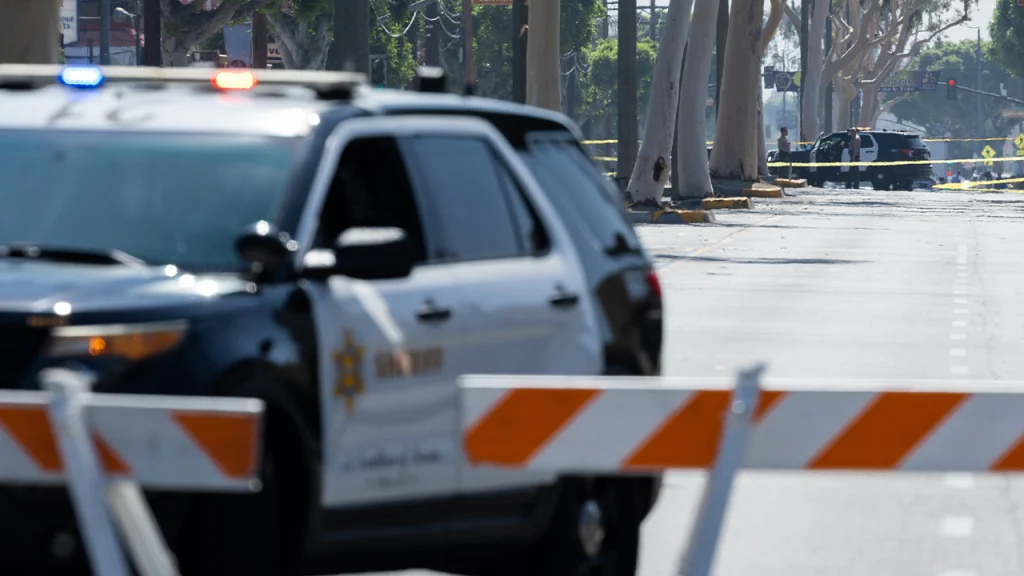DOJ Takes Unprecedented Stand for Second Amendment Rights in Los Angeles
In a landmark move underscoring the ongoing tension between federal authority and local governance, the U.S. Department of Justice has launched its first-ever gun rights lawsuit against Los Angeles County. The suit alleges that the Los Angeles Sheriff’s Department (LASD) has systematically obstructed residents’ constitutional right to bear arms by creating nearly insurmountable barriers to obtaining concealed carry permits. The statistics are stark: out of approximately 8,000 applications, only two were approved, with many citizens waiting years just for an initial interview. This legal action comes at a time when many major cities are grappling with rising crime rates, leaving residents feeling increasingly vulnerable and searching for ways to protect themselves and their families.
The DOJ’s Civil Rights Division contends that the LASD has engaged in a “pattern or practice” that effectively denies law-abiding citizens their Second Amendment rights. Attorney General Pam Bondi didn’t mince words when defending the federal government’s position: “Los Angeles County may not like that right, but the Constitution does not allow them to infringe upon it.” Assistant Attorney General Harmeet K. Dhillon, who is also pursuing separate legal action against the county, highlighted the disparity between Los Angeles and other jurisdictions, noting that while San Francisco and Washington D.C. process permits in days, Los Angeles residents often wait more than a year just for an interview. “Imagine if you had to get a license to enjoy your First Amendment rights, and then the government just sat on it forever,” Dhillon remarked. “A right is a right. The Second Amendment is not a second-class right.”
The LASD has pushed back against these allegations, with spokesperson Nicole Nishida stating that the department has been “issuing permits at a significantly increased rate,” contrary to the DOJ’s claims. Los Angeles Mayor Karen Bass’s office also contested the narrative of rising crime, telling Fox News Digital that recent reports indicate the city is on pace for its “lowest homicide total in 60 years.” This disconnect between official statements and the DOJ’s findings highlights the complex and often politicized nature of discussions surrounding crime statistics and gun rights. Meanwhile, citizens caught in the middle are left waiting – some for as long as three years – to exercise what the Supreme Court has repeatedly affirmed is a fundamental constitutional right.
Beyond the constitutional arguments, proponents of the lawsuit frame the issue as one of practical public safety. “With violent crime in Los Angeles, I think the best offense is a good defense,” Dhillon argued. “The more citizens who are responsible carriers in public places, the better. Where a crime is occurring and a trained armed citizen is there to help save a life or interrupt a serious crime, that keeps all of us safer.” Acting U.S. Attorney Bill Essayli echoed this sentiment in the DOJ’s news release, stating that “Citizens living in high-crime areas cannot afford to wait to protect themselves with firearms while Los Angeles County dithers.” This perspective challenges the conventional wisdom in many progressive municipalities that fewer guns automatically translate to greater safety.
The solution, according to Dhillon, is surprisingly straightforward: allocate more resources to processing these applications efficiently. “They need to just hire more people to do this… There shouldn’t be a three-year wait. It should be a couple of days or a week to get your paperwork back once they run your fingerprints, ensure you’re not a criminal, and confirm you’ve had training.” She pointed to Washington D.C. as an example of a jurisdiction that has streamlined this process, allowing her to receive her permit just six days after application. “That’s because they prioritize it. They treat it seriously. Los Angeles can do the same if they choose to.” The implication is clear: the current backlog is less about capacity constraints and more about political priorities.
This case represents more than just a dispute over administrative processes – it reflects fundamental questions about the relationship between government authority and individual rights. Republican Congressman Kevin Kiley framed the issue in terms of citizen empowerment: “Every law-abiding citizen should have the right and ability to protect themselves and their families.” Dhillon concluded with a broader vision for American society: “I think an armed citizenry is a safe citizenry… It is about time that American citizens stepped up and took responsibility for their own defense safely. We should be encouraging gun safety, we should be encouraging gun education, we should be encouraging gun ownership in this country.” As this lawsuit moves forward, it may well establish precedents that reshape how local jurisdictions across the country administer concealed carry permit programs, potentially shifting the balance between local regulatory authority and federal protection of constitutional rights.


